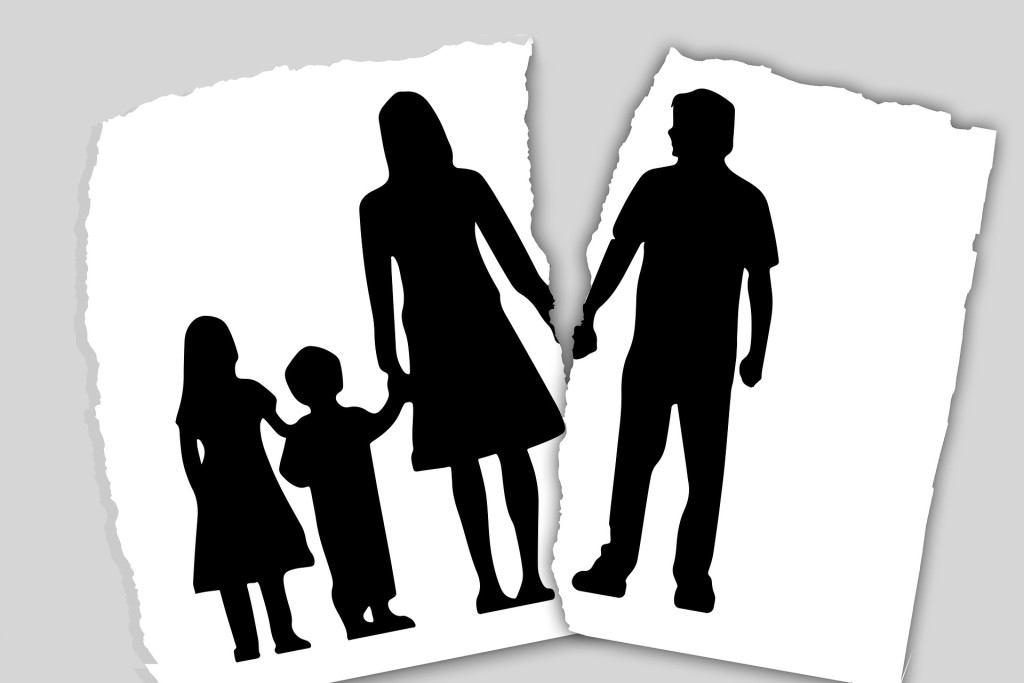By now, most of us are familiar with the statistics surrounding divorce. In western cultures, where more than 90 percent of people marry by the age of 50, about 40 to 50 percent of those marriages end in divorce. (Encyclopedia of Psychology) When children are involved, parents must find a way to convey the news and help their offspring cope with the new family dynamic. Here are some tips for helping your child cope with this stressful time:
- Break the news together. Maintain a united front when telling your child about the divorce. Both parents need to be present as this helps preserve your child’s relationship with each of you.
- Avoid the blame game. No matter how ugly things have gotten between you and your spouse, this is one time when you need to stop pointing the finger at each other and focus on the wellbeing of your child. There’s no need to share the details of what went wrong and why you’re angry, and you definitely don’t want to talk badly about your spouse. Your child will still need the love and support of both of you moving forward.
- Be honest. Kids typically react to the news in a variety of ways based on their age and personality. To ease the hurt, be as open and honest as possible without divulging the ugly details. Younger children respond best to a simple explanation, such as “It’s been difficult for Mommy and Daddy to get along, so we’re moving to separate houses where everyone will be happier.” For the most part, however, it will be up to you to determine what your child can handle.
- Explain how things will work. Your child’s physical surroundings will change, and he will naturally have questions about where he’ll be living and when he will see each parent. Be specific about days, times and locations, and discuss plans for school and other activities. School-age children and adolescents may be particularly concerned about their friends and whether they’ll be able to maintain those relationships.
- Make sure they know it’s not their fault. In some instances, kids may think they caused the divorce, perhaps because of bad behavior. It’s important to reassure them that the decision was based on your relationship as a couple – and nothing else.
- Check in regularly. After the initial discussion and during the subsequent adjustment, you’ll want to communicate with your child on a regular basis. Don’t be afraid to bring up the topic and ask how he’s getting along. This is especially important if your child tends to harbor his feelings. Emotions like anger, frustration and sadness can linger for a long time.
- Maintain the discipline. When parents feel guilty about how the divorce might be affecting their child, they sometimes loosen up on the discipline. This can also occur when one parent tries to gain favoritism over the other parent. The truth is, your child needs structure and limits now more than ever, and both parents should be consistent about discipline.
- Keep up with daily routines. As much as possible, try to minimize any changes in your child’s routine. You want daily life to feel normal and not too disruptive for your child. This probably isn’t a good time to introduce a new activity or add to a lengthy list of responsibilities. Simple routines are best.
- Talk about emotions. Every child will experience some level of anger and sadness, and some may even misbehave or withdraw. If talking with your child is not enough, consult with a mental health professional.
- Convey your love. When all is said and done, your child needs to know that both you and your spouse love him dearly. Nothing about the divorce changes that. Despite the split, it’s important for your child to understand that he will always have the love of both parents.
David Lowenstein, Ph.D. is a psychologist and the clinical director of Lowenstein & Associates, Inc. in Columbus, Ohio. In addition to providing therapeutic services to individuals and families, he offers training and consultation to numerous associations, schools and agencies around the country. Additionally, he is a frequent radio and TV guest and a resource and contributing writer for numerous newspapers and magazines nationwide. Contact Dr. David Lowenstein at 691 South Fifth Street, Columbus, Ohio, 43206, or call 614.443.6155 or 614.444.0432.


